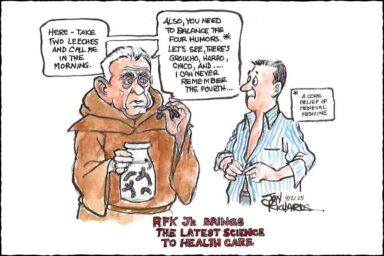Not Trusting Pentagon Investigation of Afghan Hospital Bombing
Does Doctors Without Borders Deserve an Independent Probe?
With 42 civilians killed, the US bombing of a Doctors Without Borders hospital in Kunduz, Afghanistan, has been the subject of much scrutiny. But the question of who is allowed to investigate the events of October 3rd has become controversial itself.
The October 3 airstrike on a Doctors Without Borders hospital in Kunduz, Afghanistan, carried out by the US, left 42 civilians dead and thousands of Afghans without access to emergency medical care.
The United States — often first in line to call for independent investigations of the actions of others — is blocking efforts to mount an international inquiry into the devastating raid.
Exhibit A of the US double-standard on accountability: the Obama administration’s reaction to the July 2014 downing of a Malaysian airliner over territory controlled by “Russian-backed separatists” in eastern Ukraine.
Referring to that tragedy, President Obama said, “[A]mid our prayers and our outrage, the United States continues to do everything in our power to help bring home their loved ones, support the international investigation, and make sure justice is done.” He also condemned the “separatists” for interfering with the crash investigation and tampering with evidence.
But that was when the Russians and their allies were the suspects. In the wake of the Afghan hospital bombing, the US has insisted it has the ability to investigate itself impartially, a claim Doctors Without Borders (Médecins Sans Frontières, or MSF) strongly rejects.
“Very Precisely Hit”
.
Supporting the MSF position is the fact that the official US story has changed numerous times. US forces first claimed the airstrike was carried out “against individuals threatening the force,” and that the nearby hospital was only collateral damage.
In response, MSF said “the main hospital building, where medical personnel were caring for patients, was repeatedly and very precisely hit during each aerial raid, while the rest of the compound was left mostly untouched,” suggesting the strikes were not a mistake.
Local Afghan forces attempted to justify the attack on grounds that Taliban fighters shot at US and Afghan forces from the hospital.
The MSF categorically denies this, saying that the Afghan statement “amounts to an admission of a war crime.” Hospitals are protected under laws of war.
The differing accounts of what happened that day only underscore the need for an independent, impartial body to conduct an investigation.
“Violations of the Rules of War?”
.
The US military completed its internal investigation in November. In contrast to earlier US statements, the latest report does not claim the bombing of the hospital was collateral damage inflicted while protecting US troops under fire from the Taliban. Instead, the report says that US forces intended to strike a nearby building where they believed insurgents were taking shelter, but that “human error, compounded by systems and procedural failures“ resulted in US forces striking the MSF compound instead. The communications systems malfunctioned, and personnel requesting and executing the strike “did not undertake the appropriate measures to verify that the facility was a legitimate military target,” said General John Campbell.
But MSF is not satisfied. Christopher Stokes, the organization’s General Director, said in a written statement dated November 25, “the US version of events presented today leaves MSF with more questions than answers. The frightening catalogue of errors outlined today illustrates gross negligence on the part of US forces and violations of the rules of war.”
MSF has called on the International Humanitarian Fact-Finding Commission to launch an independent investigation. The IHFFC was established under the Geneva Conventions but has never been used since it was officially constituted in 1991. According to the group’s website, “The IHFFC stands ready to undertake an investigation but can only do so based on the consent of the concerned… States.”
However, the United States and Afghanistan are unlikely to give their consent, as they would prefer their own investigation to be accepted as definitive.
Doctors WIthout Borders condemns this stance in the strongest possible language.“We cannot rely solely on the parties involved in the conflict to carry out an independent and impartial examination of an attack in which they are implicated,” said MSF-USA Executive Director Jason Cone. “Perpetrators cannot also be judges.”
Related front page panorama photo credit: MSF staff in Kunduz send their appreciation to people around the world who’ve stood in solidarity with them. (Peter Casaer / MSF).



